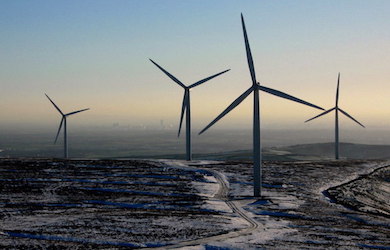Online shopping was a convenient alternative to hitting the shops even before the pandemic. When the pandemic hit, online shopping ballooned as it became the safest way to purchase goods. Retailers know that generous return policies give customers confidence to purchase items online and have made it increasingly easy for consumers to return goods for free. But this has had serious repercussions for the environment.
Online Returns Hit Highs This Christmas
Shoppers have sent back more goods than ever this Christmas as the cancellation of parties and the return to working from home led to an enormous pile of unwanted goods. Since Christmas, returns have surged by 24% on the year before, according to ZigZag, which works with the likes of Boohoo, Selfridges and Gap. Fellow returns specialist ReBound has recorded even higher demand, with returns in December 40% greater than a year earlier. [2]
What many consumers may not know is that shipping returned goods not only contributes to greenhouse-gas emissions, but much of what is sent back to retailers ends up in landfills. [1]
Environmental Impact of Returned Goods
Managing the flow of returned goods in a sustainable way is essential for the retail industry. Not just looking at the impact of the transportation miles of delivery to and from distribution centres and homes – but also what happens to an item that is no longer wanted.
The carbon footprint of returned items increases when they are shipped across the country multiple times between distribution centres, delivery depots and our homes. If you decide to return them, your purchases then enter the reverse supply chain.
Consumers may think that returns are resold to the next consumer, but in reality, the majority of returned items cannot be resold as new. They rewind their way back through a network of middlemen and resellers and often ultimately end up in landfill.
Why Do So Many Returns End Up In Landfill?
Companies opt not to return goods to the market for several reasons. In some cases, returned goods have been damaged or are no longer in season, such as a winter coat returned in a spring month. Often the value of the product is so low that it’s simply cheaper to throw it away than to handle the logistics of resale. [1] Returns put a lot of pressure on retailers: they demand extra warehouse space and employees to sort them, and they often can only be resold at marked down prices. Subsequently, less than half of returns go back on sale. The vast majority of major retailers now send those unwanted items to charities or for recycling, or to resellers who then mend or repurpose them for sale on eBay or Depop. However a significant proportion is still thought to be either burned or sent to landfill despite a furore over such practice in recent years.
Environmental Groups Driving Legislative Change
Change is partly being driven by the threat of legislation. In France, companies must monitor what happens to unsold goods and from this year are banned from destroying them. Other European countries are expected to follow suit. [2]
Environmental groups have written to the Prime Minister calling for a new anti-waste, or ‘Amazon law’, after the online retailer was forced to deny allegations last year that it destroys unsold edible food as well as returned household and electrical goods. In a letter signed by representatives of six of the UK’s biggest environmental charities including Greenpeace, the Environmental Investigation Agency, Friends of the Earth England, Wales and Northern Ireland, and Surfers Against Sewage, the groups called on the government to introduce an ‘Amazon law’ on what companies can and cannot do with unsold or returned products. [3]
In the meantime retailers are being urged to better educate consumers about the effects of buying more selectively in order to reduce the waste of unnecessary returns.
About Pager Power
Pager Power undertakes technical assessments for developers of renewable energy projects and tall buildings. For more information about what we do, please get in touch.
References
Thumbnail image accreditation: Rupixon.com (July 2019) from Unsplash.com. Accessed in January 2022. Available at:
https://unsplash.com/photos/Q59HmzK38eQ



